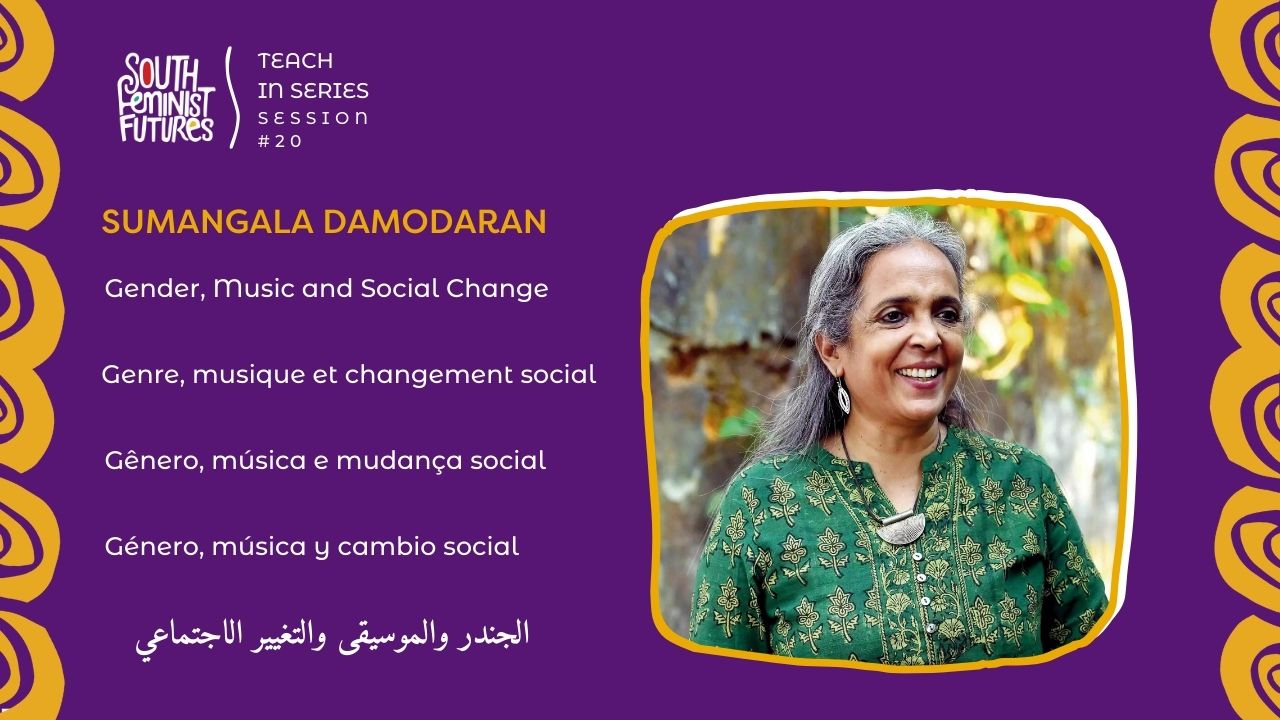“Gender, Music and Social Change – Unravelling the Interconnections and Implications” is the twentieth session of our Political Economy Teach-in Series. It was held on February 27, 2025, and delivered by Sumangala Damodaran.
The session explored the relationship between music and society and uncover gender in and through various kinds of music. The emphasis was on music and musicians from the Global South, particularly in cultures where music is passed down orally and aurally rather than in written form. Through a perusal of issues that have animated the production of various kinds of music and also using examples of where they have arisen from social movements and mobilization of different sorts, the session illustrated how music can serve as a lens for understanding society and societal change.
Sumangala Damodaran is an economist and a scholar of popular music studies. She has archived the musical compositions of Indiaʼs anti-colonial and working-class music from a tradition known as the Indian Peopleʼs Theatre Association, which resulted in the book The Radical Impulse (2017) and an album titled Songs of Protest. Apart from her academic involvements, she is also a singer and composer. She has worked on precolonial AfroAsian connections using music as a lens, in collaboration with scholars and musicians from South Africa, Ethiopia, Zanzibar and China, producing several musical productions and two books.
Our South Feminist Political Economy Teach-in Series aims to strengthen intergenerational dialogue and build a cross-regional feminist constituency. The series covers various topics to interrogate and strengthen understanding of issues shaping conditions in the Global South.
Here is our specially curated reading list, designed to deepen your understanding of the topic and inspire meaningful discussion. It features powerful contributions from authors and thinkers across the Global South.
